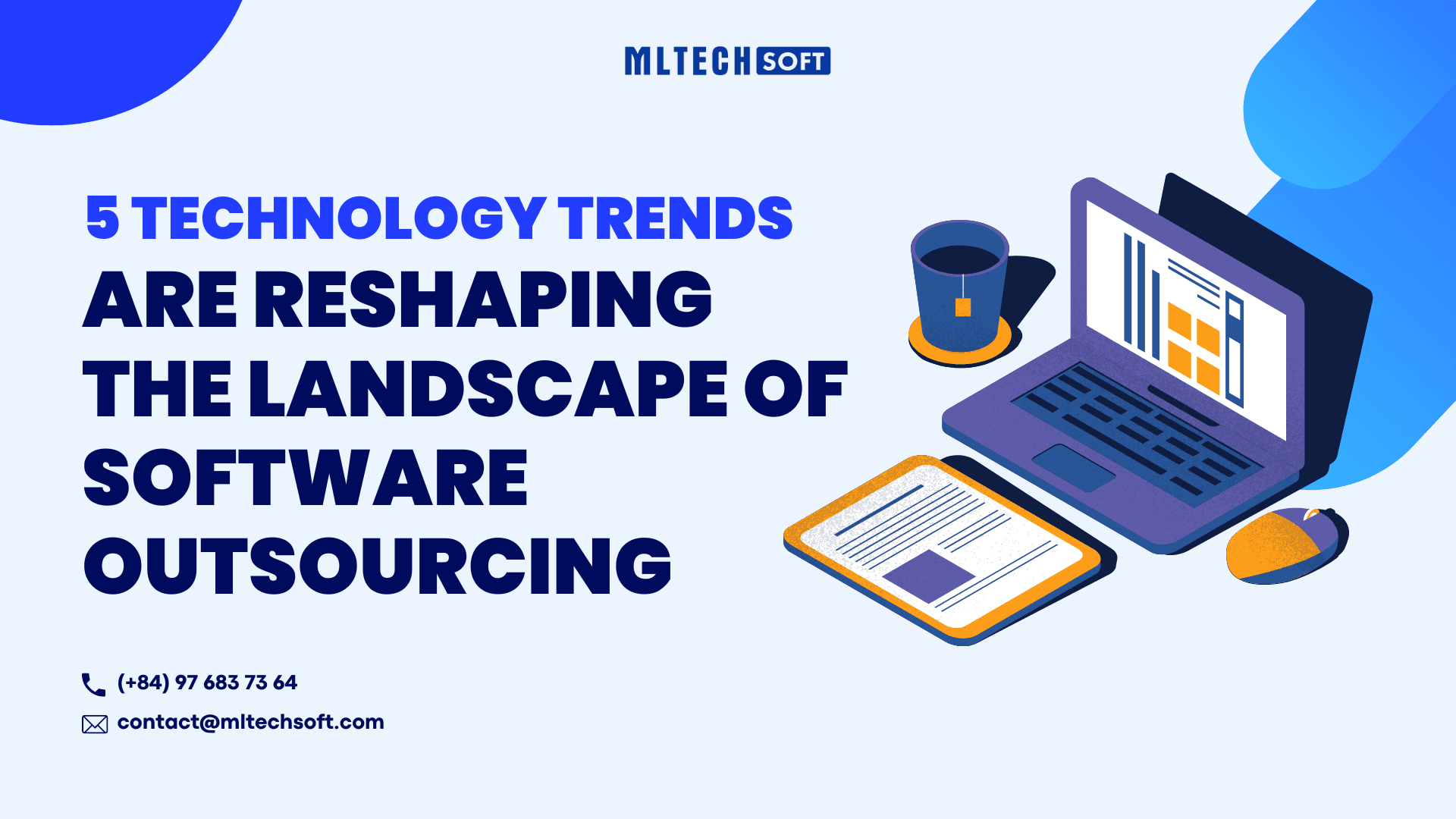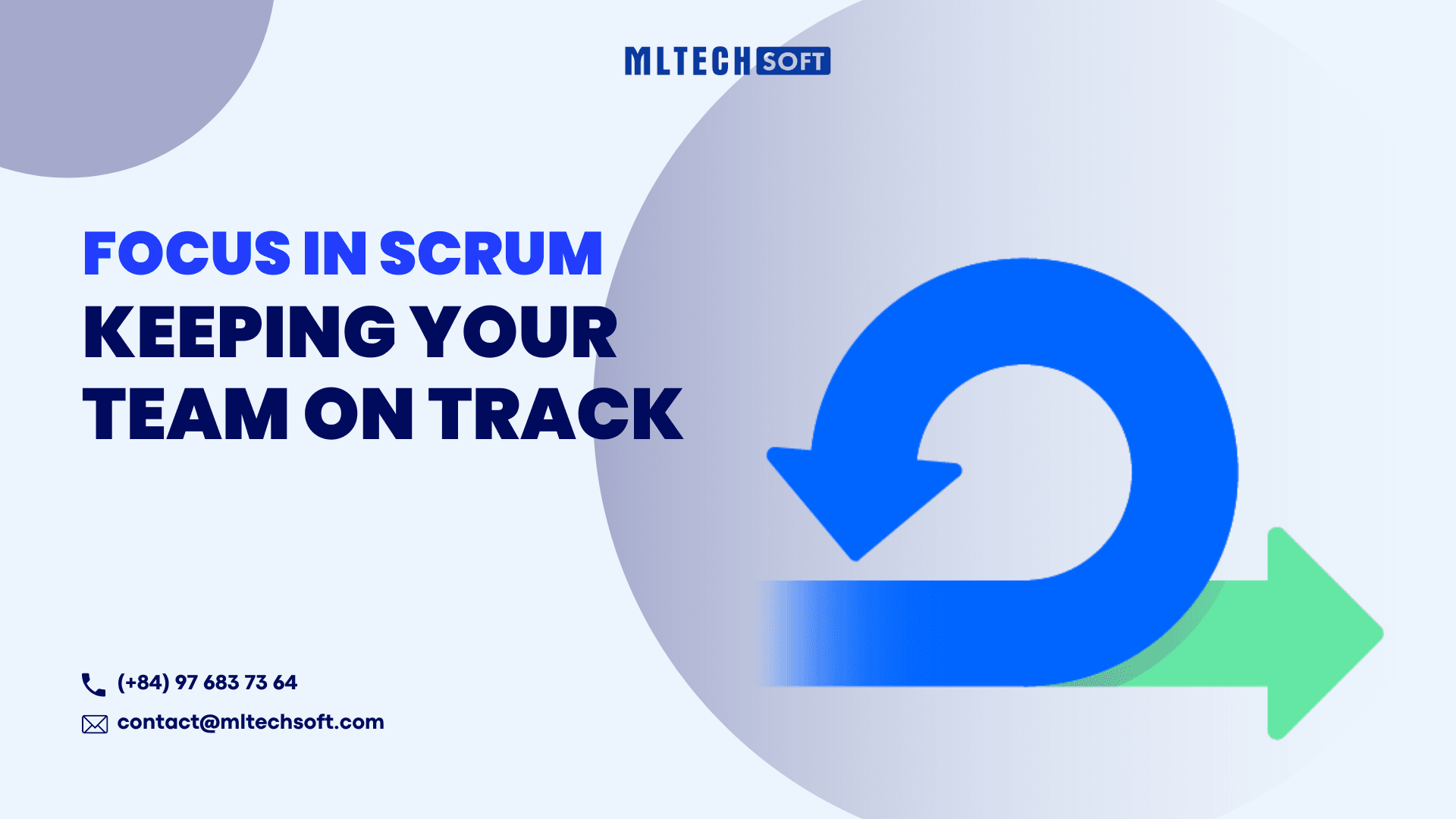Scroll down for more
5 Trends Are Reshaping The Landscape Of Software Outsourcing

Software outsourcing is basically when companies decide to get help from outside experts for their software projects. It could be anything from creating new apps to managing existing software. By outsourcing these tasks, businesses can access a wider pool of talent and focus on what they do best while saving time and money.
In today's fast-paced tech world, staying informed about the latest trends is key, especially for companies outsourcing their software projects. Understanding these trends helps businesses make better decisions, adapt their strategies, and stay ahead of the competition. By keeping up with what's happening in the tech world, companies can make sure their outsourcing partnerships are effective and up-to-date.
The landscape of software outsourcing is currently undergoing transformation due to five significant technology trends. Each of these trends has the potential to revolutionize the way projects are conceived, developed, and ultimately delivered. By exploring the implications and identifying opportunities for integration, businesses can optimize their strategies and drive innovation in their projects.
1. AI and ML Integration
1.1. Role of AI/ML in Software Development Outsourcing
AI and ML are playing increasingly important roles in software development outsourcing. These technologies empower outsourcing teams to automate repetitive tasks, improve decision-making processes, and enhance efficiency. By leveraging AI and ML algorithms, outsourcing partners can streamline development workflows, optimize resource allocation, and deliver more intelligent and innovative solutions to clients.
1.2. Examples of AI/ML Applications in Outsourcing Projects
AI and ML find diverse applications across various stages of outsourcing projects. For instance, in software testing, AI-driven test automation tools can expedite the identification of bugs and enhance the quality of software products. In software development, ML algorithms can analyze large datasets to predict potential issues and optimize code performance. Additionally, AI-powered chatbots are increasingly used for customer support in outsourcing projects, improving responsiveness and user experience.
1.3. Benefits and Challenges of Integrating AI/ML in Outsourcing
Integrating AI and ML into outsourcing projects offers several benefits, such as improved productivity, enhanced accuracy, and cost savings through automation. These technologies enable teams to tackle complex tasks more efficiently and deliver higher-quality results within shorter timeframes. However, integrating AI and ML also presents challenges, including data privacy concerns, the need for specialized expertise, and potential biases in algorithmic decision-making. Overcoming these challenges requires careful planning, robust data governance frameworks, and ongoing collaboration between outsourcing partners and clients.
2. Agile and DevOps Methodologies
2.1. Transition from Traditional to Agile and DevOps Methodologies in Outsourcing
In recent years, there has been a notable shift from traditional project management approaches to Agile and DevOps methodologies in outsourcing. Unlike traditional waterfall methods, Agile and DevOps prioritize flexibility, collaboration, and continuous delivery. This transition reflects the industry's recognition of the need for faster development cycles, greater adaptability to changing requirements, and closer alignment with business objectives.
2.2. Advantages of Agile and DevOps in Outsourcing Projects
The adoption of Agile and DevOps methodologies in outsourcing projects offers several advantages. Firstly, Agile fosters greater transparency and collaboration between outsourcing teams and clients, enabling more frequent feedback and course corrections. Secondly, DevOps promotes seamless integration between development and operations, leading to faster deployment cycles and improved reliability. Together, Agile and DevOps empower outsourcing teams to deliver high-quality software solutions more efficiently, reducing time-to-market and enhancing customer satisfaction.
2.3. Best Practices for Implementing Agile and DevOps in Outsourcing Partnerships
Implementing Agile and DevOps in outsourcing partnerships requires careful planning and sticking to best practices. Firstly, establish clear communication channels and define roles and responsibilities to facilitate collaboration and alignment between all stakeholders. Secondly, prioritize incremental delivery and continuous integration to ensure early and frequent feedback loops. Thirdly, invest in automation tools and infrastructure to support Agile and DevOps practices, enabling faster development cycles and more reliable deployments. Lastly, foster a culture of continuous improvement, encouraging teams to regularly reflect on their processes and adapt them to evolving needs and challenges.
3. Cloud Computing Adoption
3.1. Impact of Cloud Computing on Software Outsourcing
Cloud computing has had a profound impact on software outsourcing practices. Cloud technology provides outsourcing teams with scalable and flexible infrastructure, enabling them to rapidly deploy, manage, and scale software applications without the need for significant upfront investment in hardware or infrastructure. This shift to the cloud has transformed the outsourcing landscape by offering greater agility, cost-effectiveness, and resource accessibility.
3.2. Benefits of Leveraging Cloud Services in Outsourcing Projects
Leveraging cloud services in outsourcing projects offers numerous benefits. Firstly, it eliminates the need for physical infrastructure, reducing costs associated with hardware procurement, maintenance, and upgrades. Secondly, cloud platforms provide on-demand scalability, enabling outsourcing teams to easily adjust resources based on project requirements and workload fluctuations. Thirdly, cloud services offer built-in security features and compliance certifications, enhancing data protection and regulatory compliance. Lastly, cloud-based collaboration tools facilitate seamless communication and collaboration between distributed teams, improving productivity and efficiency.
3.3. Considerations for Selecting the Right Cloud Platform for Outsourcing
When selecting a cloud platform for outsourcing projects, several considerations should be taken into account:
- Assess the specific requirements and constraints of the project, such as performance, security, and compliance needs.
- Evaluate the scalability and flexibility of the cloud platform to ensure it can accommodate future growth and changing demands.
- Consider the cost structure and pricing model of the cloud provider to determine the total cost of ownership and ensure alignment with budgetary constraints.
- Evaluate the provider's reliability, uptime guarantees, and customer support services to minimize potential disruptions and ensure a smooth outsourcing experience.
4. IoT Integration
4.1. Growing Role of IoT in Software Development and Outsourcing
IoT technology enables the interconnection of devices and the collection of vast amounts of data, which can be leveraged to create innovative software solutions. In outsourcing, IoT is driving the development of smart, connected products and services, revolutionizing industries such as healthcare, manufacturing, and logistics.
4.2. Examples of IoT Applications in Outsourcing Projects
IoT has diverse applications in outsourcing projects across various industries. For example, in healthcare, outsourcing teams can develop remote patient monitoring systems that collect and transmit vital health data to healthcare providers in real-time, enabling proactive care delivery and reducing hospital readmissions. In manufacturing, IoT-enabled predictive maintenance solutions can help optimize equipment performance and minimize downtime, improving operational efficiency and reducing costs.
4.3. Challenges and Opportunities in Incorporating IoT into Outsourcing Strategies
Incorporating IoT into outsourcing strategies presents both challenges and opportunities. One challenge is the complexity of IoT ecosystems, which involve diverse devices, protocols, and data formats. Outsourcing teams must possess specialized expertise in IoT technologies to navigate this complexity successfully. Additionally, ensuring data security and privacy in IoT solutions is paramount, requiring robust encryption, authentication, and access control mechanisms.
However, despite these challenges, IoT presents significant opportunities for outsourcing teams to innovate and deliver value-added services to clients. By leveraging IoT technologies, outsourcing partners can create differentiated offerings that enhance customer experiences, improve operational efficiency, and drive business growth. To capitalize on these opportunities, outsourcing teams must invest in continuous learning and development to stay abreast of IoT advancements and emerging best practices.
5. Blockchain Technology Implementation
5.1. Emerging Trend of Blockchain Technology in Outsourcing
Blockchain technology is rapidly emerging as a transformative trend in software development outsourcing. Originally known for its association with cryptocurrencies like Bitcoin, blockchain has evolved into a decentralized ledger technology with applications across various industries. In outsourcing, blockchain is gaining traction for its potential to enhance security, transparency, and efficiency in transactions and data management.
5.2. Use Cases of Blockchain in Software Development Outsourcing
Blockchain offers a myriad of use cases in software development outsourcing. For instance, outsourcing teams can leverage blockchain for secure and transparent supply chain management, enabling real-time tracking of goods and ensuring the authenticity of products. In financial services, blockchain-powered smart contracts facilitate automated and tamper-proof transactions, reducing the need for intermediaries and streamlining processes.
5.3. Potential Benefits and Considerations for Adopting Blockchain in Outsourcing
The adoption of blockchain in outsourcing projects offers several potential benefits:
- Enhance security by employing cryptographic algorithms and decentralized consensus mechanisms, reducing the risk of data tampering and unauthorized access.
- Promote transparency and trust through immutable, auditable records of transactions and data exchanges.
- Streamline operations and reduce costs by automating processes, eliminating intermediaries, and minimizing administrative overhead.
However, adopting blockchain in outsourcing also entails considerations and challenges:
- Blockchain technology is still evolving, requiring outsourcing teams to stay abreast of advancements and best practices to effectively implement it in projects.
- Regulatory compliance and legal frameworks surrounding blockchain vary across authorities, needing careful consideration of legal implications and compliance requirements.
- Scalability and interoperability remain challenges for blockchain adoption, particularly in projects requiring high transaction volumes or integration with existing systems.
Despite these challenges, the potential benefits of adopting blockchain in outsourcing, such as enhanced security, transparency, and efficiency, make it a compelling option for forward-thinking organizations. By carefully evaluating use cases, addressing challenges, and implementing blockchain solutions strategically, outsourcing teams can unlock the transformative potential of this innovative technology and deliver value-added services to clients.
Conclusion
Looking into the future, it's clear that software outsourcing will rely heavily on technological innovation. As AI, Agile, cloud computing, IoT, and blockchain keep advancing, outsourcing partnerships will become more strategic and collaborative. Successful outsourcing relationships will focus on being flexible, agile, and committed to using technology for business growth. In this tech-driven world, embracing these trends won't just keep outsourcing practices competitive - it'll also lead to ongoing success and excellence in software development.
Get our blog
Want the latest and greatest from our blog straight to your inbox? Chunk us your details and get a sweet weekly email.
Read more in our blog

Project Management
The Impact of Dynamic Pricing on Customer BehaviorExplore the impact of dynamic pricing on customer behavior and learn how to implement effective pricing strategies.

Project Management
Focus in Scrum: Keeping Your Team on TrackDiscover effective strategies to maintain focus within your Scrum team, overcome common challenges, and boost productivity.

Project Management
Key Metrics for Mobile App SuccessDiscover the essential metrics for mobile app success, from user acquisition and engagement to monetization and performance.
MLTECH SOFT